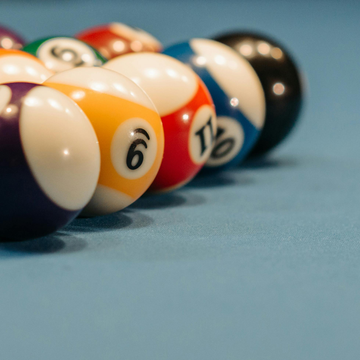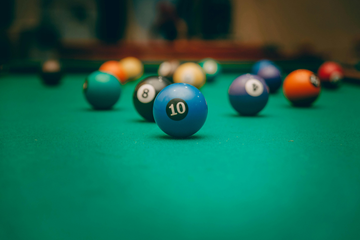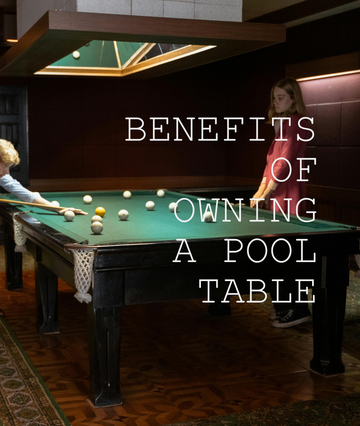Pool Tables 101: Understanding Different Types and Materials
by Danny Tang on Feb 23, 2024

A pool table is more than just a piece of recreational equipment; it's a centerpiece for entertainment, a catalyst for social gatherings, and, for many, a serious investment in the game of billiards. Whether you're a seasoned player looking to upgrade your game room or a newcomer eager to learn, understanding the different types of pool tables and the materials used in their construction is crucial. This knowledge will help you make an informed decision that suits your play style, space, and aesthetic preferences.
Types of Pool Tables
Pool tables can be broadly categorized into three main types based on their intended use and features: recreational, competitive, and coin-operated. Each type caters to different settings and levels of play.
1. Recreational Pool Tables
Designed for casual play, recreational pool tables are perfect for home game rooms and family use. They often feature MDF (Medium Density Fiberboard) or plywood constructions, making them more affordable than their professional counterparts. While these tables may not offer the precision and durability demanded by serious players, they provide ample enjoyment for those looking to play for fun or hone their skills in a non-competitive environment.
2. Competitive Pool Tables
Competitive or tournament-grade pool tables are built to meet the specifications and standards of professional play. These tables typically feature a slate playing surface, which offers unparalleled flatness and consistency. The frames are usually constructed from solid hardwood, which provides the stability and durability needed to withstand the rigors of competitive play. These tables are the choice of serious enthusiasts and professionals who demand the best in terms of playability and longevity.
3. Coin-Operated Pool Tables
Commonly found in bars, arcades, and public venues, coin-operated pool tables are designed for commercial use. They include a mechanism that locks the balls after each game until a coin is inserted to release them. These tables are built to endure heavy use and often feature robust construction with automatic ball return systems. While not typically used in homes, they represent a significant segment of the pool table market.
Materials Used in Pool Tables
The materials used in constructing a pool table significantly affect its performance, durability, and appearance. The key components to consider are the playing surface, the frame, and the cushions.
Playing Surface
- Slate: The gold standard for the playing surface, slate provides a perfectly flat and smooth area for play. It's resistant to warping and offers the best response to the balls. Slate can vary in thickness, with thicker slate (usually 1 inch) being preferred for its durability and enhanced playability.
- Wood and MDF: Some recreational tables use wood or MDF instead of slate to reduce costs. While these materials can provide a decent playing experience, they are more prone to warping and do not offer the same level of precision as slate.
Frame
- Hardwood: Frames made from hardwoods like oak, mahogany, or maple offer the best durability and stability. They also lend the table a classic, elegant appearance. Hardwood frames are typically found in higher-end and competitive tables.
- Softwood and MDF: More affordable tables might use softwoods or MDF for the frame. While these materials can still provide a solid base, they may not offer the same lifespan or stability as hardwood.
Cushions
- Natural Gum Rubber: High-quality cushions are made from natural gum rubber, providing consistent bounce and accuracy. The performance of the cushions can significantly impact the game, affecting the speed and angle of the balls after they hit the rails.
- Synthetic Materials: Some recreational tables use synthetic materials for cushions, which can be less consistent but more cost-effective.
Conclusion
Choosing the right pool table involves balancing your needs and preferences with the characteristics of different types and materials. Whether you're looking for a casual table for family fun, a competitive-grade table for serious play, or a durable coin-operated model for commercial use, understanding the nuances of each option will help you find the perfect match. Remember, a well-chosen pool table can provide years of entertainment and even become a cherished heirloom, making it a worthy investment in your home and lifestyle.




